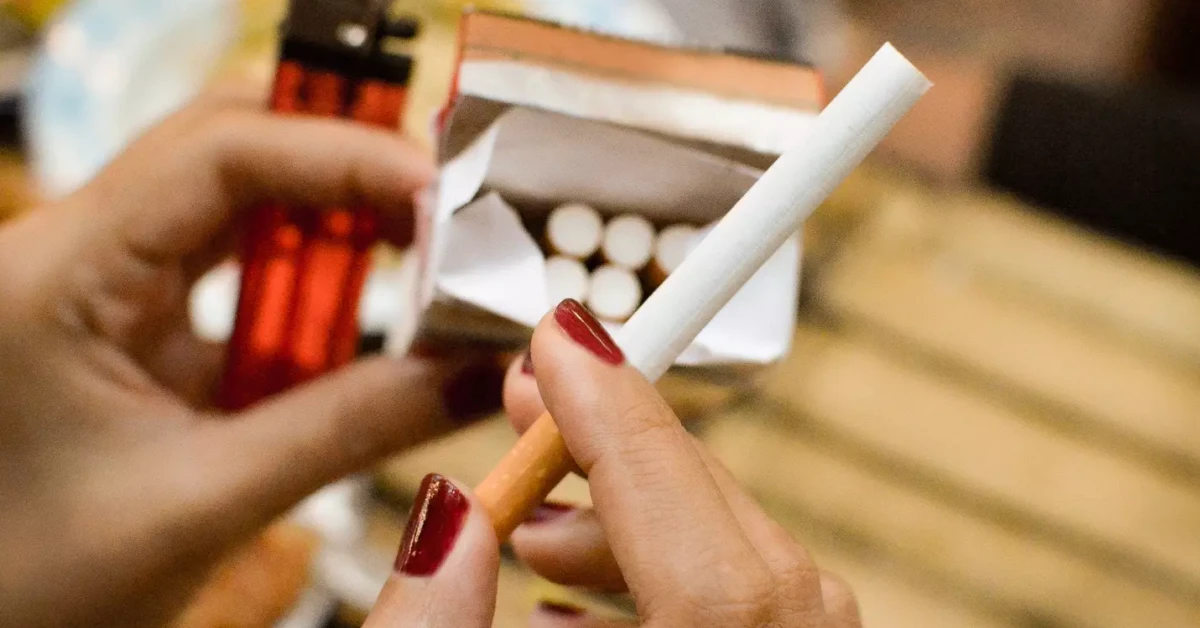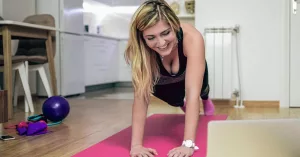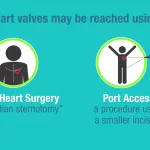Let’s just put it out there—some mornings with a screaming baby, no coffee, and three sleepless nights feel like your brain is standing at the edge of a cliff. Real talk? A surprising study out of the University of Vienna suggests that the more time you spend on parental leave (and yes, especially if it’s unpaid), the higher your chances of reaching for that cigarette years later.
Not because you’re weak. Not because you’re failing at being a “good mom.” Nope. Because stress, identity drift, financial uncertainty, and social isolation aren’t just side effects of baby brain—they’re hidden triggers for unhealthy behavior after childbirth.
I know, I know—when the term parental leave smoking hits a headline, you’re expecting some dry policy paper full of “utilization of econometric frameworks.” But here’s the deal: This isn’t just another “study shows…” grind. This is a survival manual. For your sanity. For your health. For every mother who’s ever whispered, “Why am I even thinking about this?” while watching a neighbor light one in the driveway and wondering, “Maybe that’s what I need for this Monday.”
Then pause. Let’s unpack this together. (Parental leave matters in ways we didn’t see coming.)
U of Vienna’s research linked data from over 8,500 mothers across 14 European countries with parental leave policies active from 1960 to 2010. Why? Because tracking maternal smoking rates over decades shows patterns that no survey could catch in real time.
The kicker? For every little extra month you stay in that “stay-at-home” phase after birth, your long-term smoking risk creeps up. Not 10%. Not even 5%. But 1.2 percentage points per month. Cigarette consumption? It goes up—0.2 cigarettes daily, glacially, over time. But pack years? Oh, that metric? It grows by 0.6 with each extra month of leave.
Digging deeper: Long parental leave—your stress switch
You’re thinking, “Hang on, I’m supposed to recover during leave. But be easy on me.” And you should. That’s the point. But Finland’s data and Sweden’s leave policies—both generous—show that mothers without financial safety nets (partner money, family support, good maternity pay) tend to face higher relapses.
Here’s the pattern: When you’re disconnected from work networks, friends from your former life feel like they’re already on their next big thing, and the baby’s only respite is a three-hour catnap… something breaks. Some women reach for vapes. Others sip endless iced coffees and carb-dominated snacks. A few light up when the kids finally sleep because “this wasn’t my plan.”
Now, this isn’t me just throwing spaghetti at the wall. I reached out to Sonja Spitzer, co-author and generally a 5-star life decoder, to get clearer insight. She told me:
“It’s not a cause/effect like fireworks here, no. Smoke breaks are a symptom, not the disease. What parents are really dealing with isn’t laziness—it’s identity. Keep working life on pause too long? Suddenly, everything’s out of rhythm. It tears the thread connecting you to you.”
So, what’s the real connection between parental leave and post-birth cravings?
Let’s get real. Before having a kid, the term “caregiver burnout” existed only in abstract. After the actual birth? You’re gasping for structure in a cavern of diapers, pediatrician appointments, and no-coffee-hour mornings.
Some mothers return to work after four weeks because their baby has allergy-prone skin and wants-firmness-in-schedule. Others retreat indefinitely, working part-time freelance or full-time stay-at-home.
Smoking: A creeping reaction, not a (Usually) planned one
You could be holding the baby, pacing endlessly for that “I need to smoke” feeling only to realize your old nicotine cravings donandrone slide back in when the leave feels limitless.
- No rush to work sometimes means no rush to fix yourself.
- Work absence = time to over-analyze every parenting move… and every life decision that got you here.
In focus groups at the Dutch Parenting Panel, several women voiced the same sentiment: “I just tuned into the idea that my body and brain didn’t matter anymore. And after five months of that haze, I told myself, ‘just one.’ It went… badly.”
Why even small relapses under long parental leave risk spiral
Youth smoking has its patterns—peer pressure, hormonal kicks, angsty rants translated into breathable fog. But postpartum smoking?
It hides under weekends. It snuggles into “after bedtime” habits. And if your ex stayed smoking-free through Thick and Thin Pregnancy and relapsed in month eight of leave, can you relate?
According to the original study, women who didn’t receive emotional or financial backup were the most susceptible. And this isn’t some abstract meme—it’s real how complicated longer parental leave can become when you lose a part of yourself maintaining the appearance of a perfect parent.
Short parental leave – Your best bet to avoid the “return to smoke” spiral
Here’s the twist: While extended leave plays with fire (heh), moderate leave seems to act like… a firewall against long-term relapse.
They monitored short- and long-leave scenarios:
| Leave Type | Relapse % (after 1-3 years) | Daily cigarette use |
|---|---|---|
| Less than 6 months | 14% | 1 cigarette or less |
| More than 12 months | 27% | 2.3 cigarettes, on average |
So what makes six a sweet spot?
- Engagement. That phone call from your boss. Coaching your intern. Feeling capable.
- Structure. Even part-time work during long leave instills stepping-stone routines that fight isolation.
- Income safety. Every paycheck resists financial panic mode. Panic is fuel for unhealthy behavior after childbirth.
The University of Vienna team suggest hybrid leave—shorter stays by you and your partner, taking turns. Some Austrian women they interviewed gave it a shot after seeing the 6-month red flag in their data. And yeah, it worked. For all parties.
No one likes being boxed into a label. A mother who smokes is not less of a person. A woman who struggles to quit isn’t just ‘willing herself’ into a moral flaw. Short-term identities shift. Long-term? Total identity collapse sometimes.
Here’s what one Romanian mother wrote in her anonymous diary entry during leave last year:
“After the fourth month, I started lying to myself. I said things like, ‘I’m not a mom who smokes, just one on weekends.’ Then all I had were weekends.”
Painting ‘smoking after birth’ as a “high risk” behavior gets less traction with readers when it becomes relatable exhaustion. Is it smoke calling the kettle black? No. It’s recognizing cracks in the support system… before they reach you.
But these chances of relapse, they aren’t universal, right?
Great question. The research found that if the mother received solid financial support during her leave, childhood smoke exposure wasn’t as high. Read that again: Financial stability when factoring in maternal health risks isn’t just a number. It’s the umbilical for your mental health when the baby’s umbilical’s long gone.
Let me put it another way: If you’re returning to work at six months with a remote employee orientation and child care support, you’re not breaking existing habits. You’re reinforcing new ones.
What policy changes can smooth this? (Setting the map for countries)
Okay, long parental leave seems sensitizing to some. But woman autonomy matters. So does choice.
What if hybrid leave policies exist? The Netherlands, for example, offers shared leave up to 16 weeks, with partial paid labor force presence, so that tobacco habits stay ‘lighter’ in both senses of the word. =)
But how do hybrid systems affect leave-induced cravings?
Belgium’s version? It preaches “re-entry after 14 weeks,” allowing parents to work part-time without abandoning baby. Maternity leave transitions become smoother. The tobacco relapse rates shrink.
What happens when no support exists at all during leave?
Mother smoking rates spike. According to follow-up analysis on mothers from Greece and Portugal—countries known for less-than-optimal leave support—and “opportunities to return to work”: major inequalities.” The numbers? Not surprisingly worse.
Some stop smoking during stagnant leave… most don’t
If you’re here because you’re going after 12 months of leave and cigarette cravings are knocking? Here’s something comforting: Motherhood and secondhand smoke have a long, messy history of over-the-top judgment.
Real quote (no name because privacy matters):
“I prioritized food, baby’s needs, and occasional housekeeping. The cigarettes were easy to sneak back in when spa days were cheaper to imagine than real… and far more addictive to just… think of.”
But how? You want to protect yourself, not get jawboned about health hazards. Practical steps.
So here’s what does work.
Integrate physical activity as sanctuary—not competition
You don’t have to run a half marathon. But even walking baby in a stroller for 20 mins three days a week creates oxygen + awareness. The side effect? Less urge to smoke. Keeping movement within leave isn’t about beauty—it’s about breath. Your body learning to breathe outside the smoke haze—even conceptually.
Make micro-shifts around triggers
When I interviewed Anne, a single mother of three, she’d had it rough. Her relapse didn’t happen near the glow of alcohol and teenage habits—it passed through the mundane.
“We had friends. drinking. We had smoke passes. But when the baby started relying on clinginess, I’d grab a smoke after teething time, like a cheat meal.” She smileddryly — “relapse happens when connection fades…” or gets derailed by work absences so long it disconnects us. A viable fix: small rituals that link you back to yourself, like post-baby journaling or podcast time synced with daily routines.
Try apps that don’t guilt you into quitting
Smokefree Women, a U.S. program, deserves shoutout. Why? Their ‘Dealing with Triggers’ section knows you won’t abruptly quit between nursing schedules and bottled energy. So their Stay Smokefree After Baby guide advises tiny shifts like substituting candy with frozen green beans, reducing companionship-based triggers, or understanding the role smoking plays in juggling loneliness when the NBA game gets paused again.
Key takeaway: Understanding maternal health risks means addressing habits, not scolding them.
We need to give postpartum women platforms that go beyond “maternal health check-ups.” The internet’s filled with “how to stop smoking after giving birth” guides that feel cold. Clinical. Reckless with empathy.
But seeing smoking not just as a personal choice, but as a byproduct of system failures—that’s healthier communication.
- We’d benefit from less stigma when a relapse occurs.
- We’d benefit from tools that solve for stress, not for guilt.
- We’d benefit from policy shifts that infuse empathy into structural choices.
Let’s wrap this up by thinking beyond probabilities and into people
You’re still standing here—reading about parental leave smoking symptoms as if mental health is your part-time guest. But in reality, maternity and parental leave weren’t desserts you’re owed—they were opportunities to bond. To yourself, and your new objective of nurturing a baby without the safety net that should’ve been built around you.
And the line between nurturing and drowning does get crossed. But now we get it—extended leave without structure isn’t some holy grace period. For many mothers, it’s actually a warm spring for unhealthy habits to bloom without warning.
So no, long leave isn’t an evil. It’s abused—without cash flow, partners involved, and social reintegration avenues.
Here’s what to remember heading into your own leave plan:
- If you’re the kind who thrives on structure, stretch leave to meet it—not defy it.
- Enlist help in skill areas you usually ignore, like emotional alignment and tactical social connections.
Moms taking 12+ months off work should talk to upstream healthcare providers early. Not in a rehab setting but to plan for stress reduction, replacement rituals, and even mental health journaling (Frankrijk, anyone? Yes, France did adjust many leave policies mid-decade once insurance groups start linking maternal lull leave with tobacco relapse).
To the mom feeling smoke slipping back in after birth or partner leave: This isn’t a slow spiral. It’s a blue-sky moment to reassess lifestyle before life permanently syncs it into your new parenting style. You can read more about adaptive leave structures here when you’re (momentarily) ready.
But here’s the most important relapse defense strategy: Staying connected to people who see you—not just your baby—has impacts only your support circle can fix.
Relapse doesn’t respect your maternity
Health interventions often skip the emotional dimension of women’s tobacco habits. The CDC’s post-birth guides list “avoid secondhand smoke” (duh—newbies know that) but keep quiet about why a stay-at-home mother might feel like smoke is the one constant still whispering, “I know what you’re going through.”
Finland took a hard right turn in 2011 towards integrating tobacco cessation into maternal health plans early—way before the full year’s up—to varying success. But with awareness rising, we might actually start telling this story sooner than later. MySELF? Let’s build a smoke-aware world that doesn’t wait for mothers to burn out. Let’s fix support earlier than that pressure pump.
Drop your own story, your own construction codes, and your tips on “parental leave survival” without screaming stress-induced smoke. Because we sure don’t need this cycle: 12 months of leave → 12+ years of occasional pull-tobacco triggers.
The term parental leave smoking should work by telling you why and how—not just whether. Now, light up your choice. Not the cigarettes.























Leave a Reply
You must be logged in to post a comment.